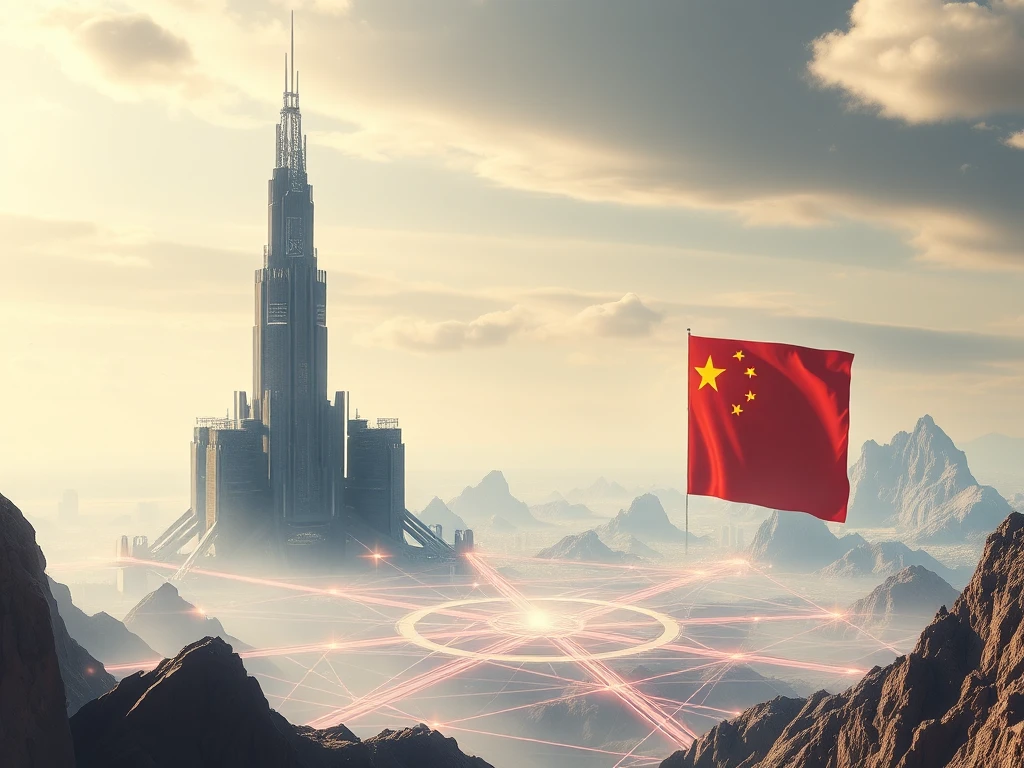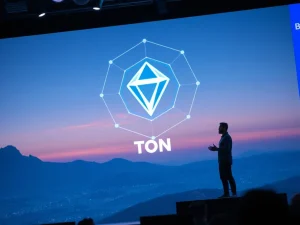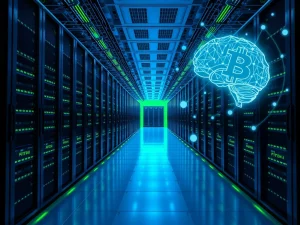Crucial US China AI Race Resembles Cold War, Warns Marc Andreessen

The world of technology, much like the cryptocurrency space, is often characterized by rapid innovation and intense competition. A recent observation from venture capitalist Marc Andreessen, co-founder of Andreessen-Horowitz, draws a compelling parallel that resonates deeply with the current global landscape. Andreessen suggests that the escalating **US China AI race** bears a striking resemblance to the Cold War of the 20th century. This perspective is crucial for anyone following technological advancements and their geopolitical implications.
Why the **US China AI Race** is Drawing Cold War Comparisons
In a conversation with Jack Altman on the Uncapped Podcast, **Marc Andreessen AI** insights highlighted a critical point: the vast majority of significant artificial intelligence platforms are emerging from just two places – China and the United States. This concentration of development is a primary reason for the Cold War analogy.
- **A Two-Horse Race:** Andreessen explicitly stated, “There is a two-horse race.” This mirrors the bipolar world order during the Cold War, dominated by the US and the Soviet Union.
- **Clash of Values:** A key aspect driving this **AI competition** is the difference in societal values and organizational principles. Andreessen argues that AI models will need to be trained on data and principles aligned with the specific jurisdictions and cultures they serve. This raises questions about which nation’s values will be embedded in the AI that shapes the future.
- **Global Ambitions:** China, according to Andreessen, harbors ambitions to “imprint the world on their ideas of how society should be organized.” This desire to export a particular model of governance and social structure through technology is reminiscent of ideological struggles during the Cold War.
The implication is clear: the nation that leads in AI development may significantly influence global norms and structures, making this **AI competition** a contest not just of technology, but of ideology and influence.
AI as the Future **AI Control Layer**
Andreessen posits that AI is destined to become the “future control layer for everything.” This means AI won’t just be another tool; it will be the fundamental interface through which humans interact with essential infrastructure and services. Consider the potential impact across vital sectors:
Imagine AI managing access and operations within:
- Healthcare systems
- Educational institutions
- Transportation networks
- Legal frameworks
If AI becomes this pervasive, the underlying values and principles embedded within it become paramount. As Andreessen put it, faced with a choice between AI reflecting “American values versus the Chinese Communist Party values,” the preferred direction seems “crystal clear” to him.
**AI Geopolitical** Implications and Consumer Concerns
The strategic importance of AI is not lost on world leaders. Figures like former US President Donald Trump have explicitly stated national goals to lead in AI over the coming decades. This underscores the significant **AI geopolitical** dimension of this technological race.
While the race for dominance continues, public perception and concerns about AI’s future impact persist. Despite assessments from tech giants like Apple suggesting contemporary AI is far from achieving Artificial General Intelligence (AGI), anxieties remain high among analysts, consumers, and developers alike. The potential negative consequences of advanced AI are a frequent topic of discussion:
- Job displacement due to automation
- Autonomous activation of military weapons platforms
- Sophisticated cyberattacks orchestrated by AI
- Subversion of democratic processes through misinformation campaigns
These fears, while sometimes labeled as “doomer” scenarios, highlight the need for careful consideration and potentially, robust regulation as the **US China AI race** accelerates.
Conclusion: The Stakes of the **AI Competition**
Marc Andreessen’s analogy of the **US China AI race** to the Cold War serves as a powerful reminder of the high stakes involved. This isn’t just about technological advancement; it’s about which value systems and organizational principles will be embedded in the foundational “control layer” of the future. The intense **AI competition** between these two global powers has profound **AI geopolitical** implications and raises important questions about regulation, ethics, and the very future of human interaction with technology. As AI continues to evolve, understanding this competitive landscape and its potential consequences is more important than ever.








